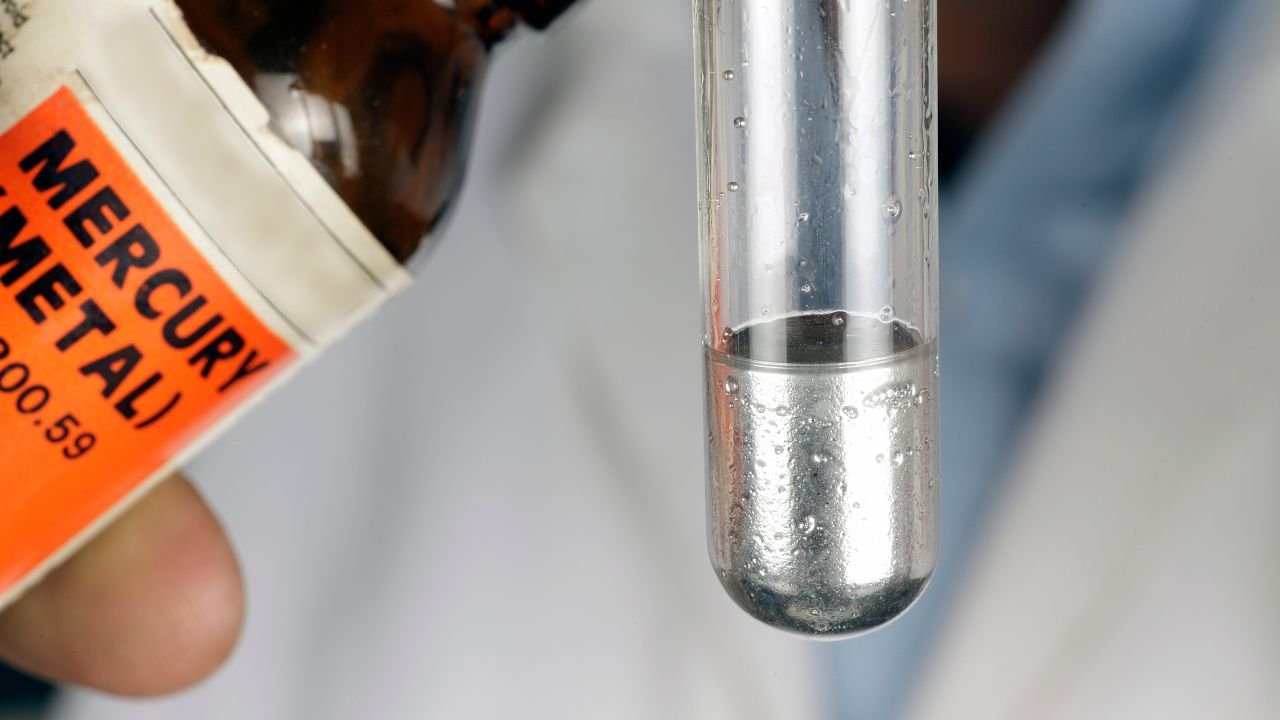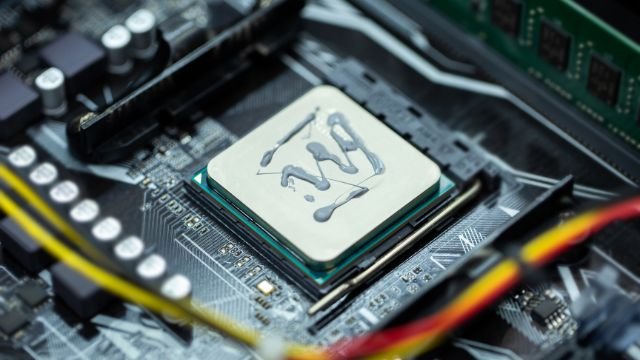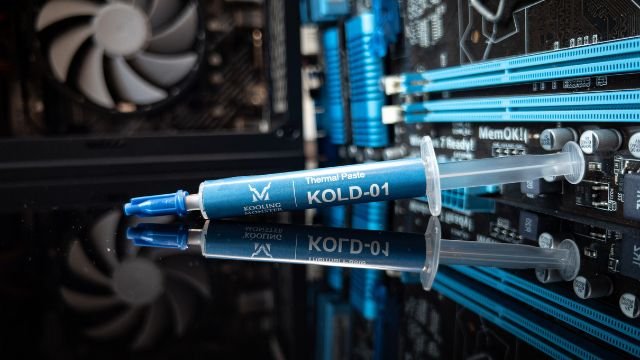Does thermal paste contain mercury?
Thermal paste is an essential component for effective cooling in computer systems, ensuring proper transfer of heat from the CPU or GPU to the heatsink. One question that often arises is whether thermal paste contains mercury, which is a toxic and dangerous substance.
Let’s find out!
Is There Mercury in CPU/GPU Thermal Paste?
No, there is typically no mercury in CPU or GPU thermal paste. Mercury is a highly toxic substance that poses significant health risks to humans, even in small doses. When inhaled or ingested, mercury can cause severe damage to the nervous system, kidneys, and lungs. Additionally, it can also harm the reproductive and immune systems, and cause developmental and behavioral problems in children.
Mercury also vaporizes at room temperature, which is why it is not a suitable material for use in thermal paste. The dangers of mercury in CPU or GPU thermal paste are amplified by the fact that the CPU can reach temperatures over 70℃. This high heat can cause the mercury to vaporize and pose even greater risks to the user.
Instead, there are other forms of thermal paste available, such as silicone-based, carbon-based, and liquid metal-based, that are much safer and more effective. Even liquid metal-based thermal pastes don't use mercury, but instead use other metals like gallium, indium, tritium, and ion. These metals are electrically conductive, but do not pose the same risks to human health as mercury. (Learn more about What is CPU/GPU Thermal Paste Made of?)
Can I Use Mercury as Thermal Paste?
Using mercury as thermal paste is not recommended and should be avoided at all costs. Mercury is a highly toxic and dangerous substance that can pose serious health risks to individuals who come into contact with it. Inhaling mercury vapor or touching mercury with bare skin can cause serious health problems, including neurological damage, kidney damage, and even death in severe cases.
Mercury is also an extremely volatile substance, meaning it can easily evaporate and spread through the air. This can result in mercury contamination in the surrounding environment, potentially affecting the health of others and causing long-term harm to the environment.
Furthermore, mercury is an electrical conductor and can cause serious damage to electronic devices if it comes into contact with them. For example, if mercury were to spill on a motherboard, it would create a short circuit and potentially damage or destroy other components in the computer system.
Given the dangers associated with mercury, it is imperative to avoid using it as a thermal paste in computer systems. Instead, there are safer, more effective alternatives available, such as silicone-based thermal paste, which are non-toxic, long-lasting, and safe to use in computer systems.
Is Thermal Paste Toxic?
Whether thermal paste is toxic depends on its ingredients. Silicone-based thermal paste contains metal oxides, but the quantity is so small that it will not have an adverse effect on health. In fact, even an entire tube of thermal paste does not contain enough toxicity to harm a person in any way. However, it's important to note that there are other forms of thermal paste, such as carbon-based and liquid metal-based, that may contain potentially toxic substances, such as lead or silver. For this reason, it's always a good idea to carefully read the product label and ingredients list before purchasing thermal paste to ensure that it's safe and appropriate for your needs.
It's also important to consider the potential hazards of thermal paste during the application process. When applying thermal paste, it's important to take proper safety precautions, such as wearing gloves and avoiding inhalation of the paste. Additionally, it's important to properly clean up any excess paste to prevent potential exposure to toxic substances.
In general, it's always a good idea to opt for a silicone-based thermal paste, as it's non-toxic and safe for use. With proper handling and application, silicone-based thermal paste is an excellent choice for cooling your computer components, providing reliable and effective performance without any negative impact on your health. (Learn more about Is Thermal Paste Tocix?)
The Benefits of Using Mercury-Free Thermal Paste for Computer Cooling
Silicone-based thermal paste (like Kooling Monster KOLD-01) offers several benefits for computer cooling, making it a popular choice among computer enthusiasts and professionals. Here are some of the reasons why silicone-based thermal paste is the preferred choice for many people:
Non-Corrosive: Silicone-based thermal paste is non-corrosive, meaning it won't damage the CPU or heatsink over time. This is important because some types of thermal paste, such as metal-based pastes, can react with the CPU or heatsink and cause corrosion or damage.
Longevity: Silicone-based thermal paste is long-lasting and can maintain its thermal properties for several years. In comparison, ceramic-based thermal pastes can dry out and lose their effectiveness over time, while metal-based pastes can degrade and become less effective over time.
Improved Performance: Silicone-based thermal paste provides better thermal conductivity compared to other types of thermal paste. This improved thermal conductivity results in better heat transfer from the CPU or GPU to the heatsink, leading to improved performance and cooler operating temperatures.
Easy to Apply: Silicone-based thermal paste is easy to apply and spread evenly over the CPU or GPU surface. This makes it a more user-friendly option compared to other types of thermal paste, which can be messy and difficult to apply.
Compatibility: Silicone-based thermal paste is compatible with a wide range of CPUs and GPUs, making it a versatile option for computer cooling. Additionally, silicone-based thermal paste is compatible with a wide range of heatsinks, ensuring that you can find a suitable solution for your system.
The Bottom Line
In conclusion, mercury is typically not present in CPU or GPU thermal paste. Instead, there are other forms of thermal paste, such as silicone-based, that are safe and offer several benefits for computer cooling. It's important to choose the right thermal paste for your system to ensure optimal performance and prevent damage to components.




